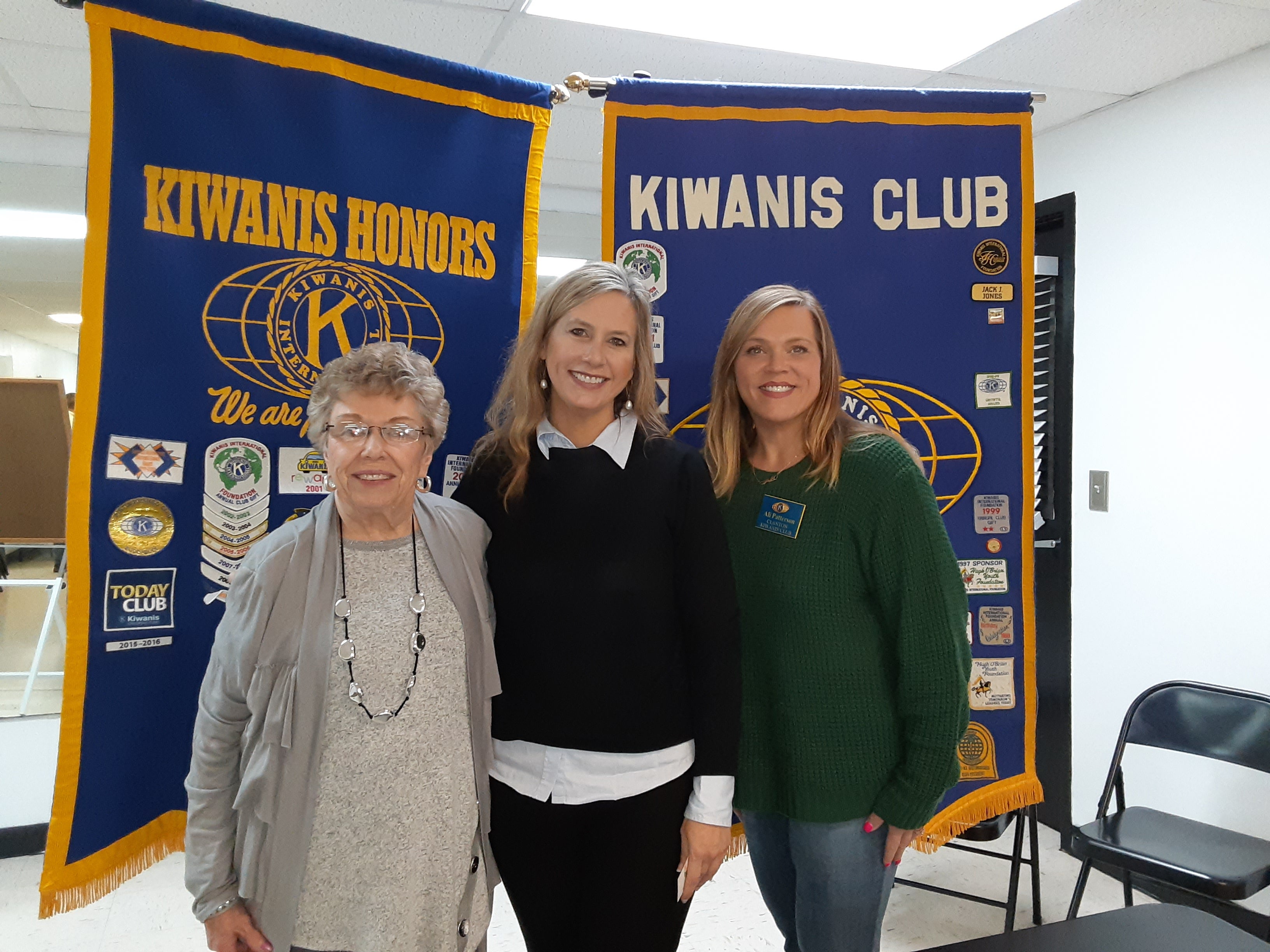Lifeline looking to bring Families Count to Chilton
Published 1:49 pm Friday, January 22, 2021

- Kiwanis Club president Ann Mims with Sonia Martin of Lifeline Children’s Services and Kiwanian Ali Patterson. (JOYANNA LOVE/ ADVERTISER)
|
Getting your Trinity Audio player ready...
|
By JOYANNA LOVE/ Managing Editor
Lifeline Children’s Services is working to bring its Families Count program to Chilton County.
Sonia Martin, Lifeline director for Central Alabama, shared about the program during a presentation to the Clanton Kiwanis Club on Jan. 21.
“Families Count is a six-week parenting class that is designed to increase rates of reunification between mommies and daddies whose children have been brought into foster care or mommies and daddies who are at risk of having their kids brought into foster care,” Martin said.
The program meets state requirements, and focuses on seeing implementation of what is taught, rather than just completing a class.
Martin said the plan is to have a program in Clanton this year.
The course is offered through a local church.
“Everything we do gets funneled through the local church body because that is biblical and that is the way that it should be,” Martin said.
The classes are usually offered on Wednesday nights and always includes a meal. Martin said, for many of these families, this is the first time that they have sat a table together for a meal. The children then go to the church’s children activities, while the parents attend Families Count.
“The teaching of Families Count is always done by a married couple,” Martin said. “By and large (attendees) are usually single moms and … many of them have never been exposed to what a healthy marriage looks like. They have never seen a man lead and love his wife well. They have never seen a man lead and love his family well, so let’s give them that.”
Transportation is provided to and from the course by a mentor.
“They begin to develop a relationship with these mommies and daddies,” Martin said.
She said this is important to helping give the families a strong foundation for success.
During the six-weeks of dinners, families are also developing relationships in the local church who can continue being their friends even after the course. Martin said this makes it less intimidating for a family, if they choose to attend a Sunday morning service.
Any church that would like to host the program can contact Martin at 205-969-8861.
The course is one way Lifeline works to decrease the negative impacts of trauma to children.
Babies and toddlers that experience neglect or trauma have a great increase in cortisol and adrenaline, which is unhealthy for their brain development, Martin said.
Trauma in childhood also has a lasting impact. She said children do “bounce back from that” but have a lower “baseline level of function” that continues to decrease with each traumatic incident.
“This child is now functioning at a deficient,” Martin said. “He does not have the capacity to behave and function like his same age peers.”
The trajectory for a child “with unmitigated trauma” is downward.
“This is also why we know what we know about rates of incarceration, addiction, teen pregnancy, homelessness, in every way those outcomes are a direct correlation to this,” Martin said. “… We have to understand where they are starting from and why they are there.”
When a child who has faced trauma is moved to stable setting with food, “no longer subject to daily encounters from his abuser” and “has at least one sustained primary care giver in his life,” the negative trajectory can be turned into a positive one when situations of acting out are “handled appropriately,” Martin said.
However, she said it takes more than just providing basic needs.
More information about Lifeline is available atlifelinechild.org.






